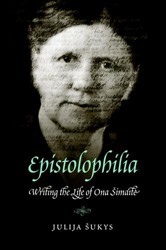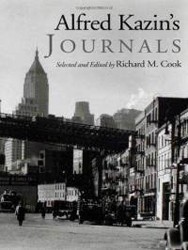For most of us, family life is often dull and unimaginative. Our relatives lead ordinary lives, work at uninspiring jobs, live in conventional communities and establish predictable families of their own. This is decidedly not the case with Eric Konigsberg.
In Blood Relation, Konigsberg describes how his life changed once he retrieved a voice mail message from his Uncle Heshy. At the time, Harold “Kayo” Konigsberg was serving a life sentence at Auburn Correctional Facility. Eric’s great-uncle, suspected of more than 20 murders, had already been convicted of extortion. Over family objections, Eric begins a series of visits to prison, conducts exhaustive research into F.B.I. and police department files, and writes the article for The New Yorker that forms the basis for this book.
An excellent reporter, Konigsberg wrestles with his obligation to tell the story, which is pitted against his desire to protect his family’s privacy. He writes, “Harold did talk to me — through ten visits over three years. I have learned things I have no idea what to do with, and I have wondered whether I have a right to keep such information to myself — and whether I have a right not to.” Eric reveals the torment in this working-class Jewish family, where one of their children becomes a lifelong criminal. For example, unable to live the fiction that Harold’s life is totally separate from that of his parents and siblings, the Sunday outings that some families spend at Grandma’s house become family outings to prison, where everyone waits in the car while Eric’s grandfather visits his brother. But, as Eric discovers, his pursuit of the story exacts a price, as his family begins to revisit the “dysfunction and unhappiness of the past.”
Konigsberg acknowledges the fascination many feel when they learn about Jews who are fighters, who are aggressive, who flout convention. Gangsters are sometimes “celebrated as folk heroes, a mythopoetic antidote to the onetime stereotype of Jews as weak and easily bullied.” But seen in the flesh, Konigsberg reveals in his uncle decidedly malignant characteristics, hardly the charming Robin Hood-type traits that myth would allow.
In time, Harold gradually reveals a classic psychopathic personality, characterized by narcissism, lack of empathy, a capacity for deceit, lack of remorse, which eclipses his charm and occasional likeability. He eventually threatens violence even against his grand-nephew, the journalist, his unsolicited biographer, this kohen who shares his blood: “The day something that has my name in it and your name on it hits the street, you are dead.” Eric knows about Harold’s ability to destroy, and even to reach out from prison, which forces him to become preoccupied with self-preservation even while he is preparing his material for publication. Thanks to his grandmother’s intercession, the threats end, but one will never know for certain whether Harold meant what he said when he bared his fangs.
The pathology of evil is always fascinating. In the hands of a skilled reporter, it can be riveting. When the reporter is closely connected to his subject and this challenges him mightily to maintain his objectivity, what emerges can engross the reader in terrifying ways. This is such a book.





